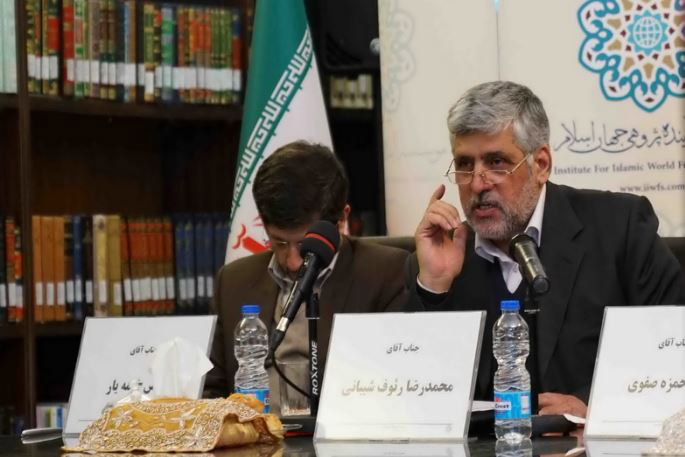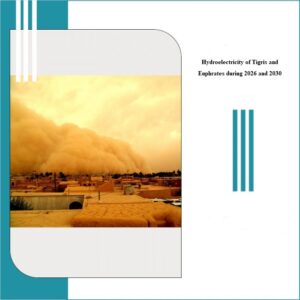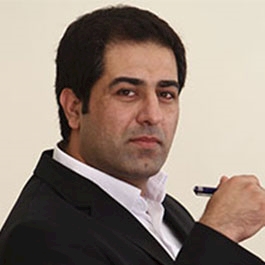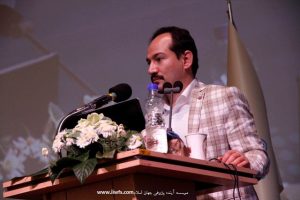In the Name of God
The Process of Political Negotiations and Upcoming Challenges in Syrian Crisis
Mohammad Reza Raouf Sheybani
The Former Iranian Ambassador to Syria
Introduction:
Before beginning the speech, I congratulate you on the start of Dahe-ye-Fajr, with respect to the memory of all martyrs, especially the martyrs of the Islamic Revolution, the Holy Defense and the Holy Shrine Defenders and Imam of the Martyrs. The headline of this speech which I’m charged with, is about the process of political solution, or in other words the process of political solution and the challenges which the Syrian crisis encounters. I will try to bring up the issue in four headlines. First, I will have a quick mention of the set of initiatives and political plans which have been proposed by the involved players of Syrian crisis. In fact, some of these initiatives have reached a dead-end and have remained resultless, but some are still discussed in the political negotiations. The next headline is about the approaches and the way the involved players interact to solve the Syrian crisis from the aspect of political solution. The third headline is about the existing challenges for political solutions and finally the up-coming horizon; and what horizon is conceptual for the Syrian crisis.
1: Initiatives and Political Schemes of the Involved Players in Syria Crisis
In the first headline, from the beginning of the crisis we have witnessed that a set of players have proposed plans based on their roles. The first player who was affected by the changes and the incidents in the Arab world, in other words the Arabic Spring, was the Arab League, who played an active role in some Arabian groups and in the changes of the Arab world. The Arab League believed it could play an important role in Syria, as in other places. Because of this, it entered the crisis very actively to attain its particular goals. In this framework, the Arab League proposed a plan which consisted of various articles. The first article was ending the violence, the next article was freeing the arrested, the third article which was very emphasized on, was the necessity of reporters attendance in Syria, especially the reporters who had the nationality of the Arab League countries and the last article was about forming a coalition government. In fact, the coalition government should be formed after the ceasefire was declared and the arrested were freed and the parliament election and the presidential election should be held under the observance of the Arab League. These headlines were the succinct of the Arab League’s plan. But because of the Arab League’s approach and its very obvious siding of the opposition and the fact that the Arab League’s aim was to alter the government and the government’s structure in Syria, the Arab League’s initiatives failed and reached a dead-end in practice. When the Arab League found out it couldn’t pursue its goals within the league, it made a recourse to the United Nations Security Council (UNSC) and held a meeting there in 2012- one year after the beginning of the Syrian crisis. The prime minister and the foreign affairs minister of Qatar along with the secretary general of the Arab League in UNSC made a report of Syria’s situation and asked for UN and UNSC’s interference in the Syrian crisis. The United Nations Security Council declared a resolution and whilst supporting the Arab League, introduced the Special Representative between the UN and the Arab League. In fact, the UN takes an obvious and prominent role in the process of political solutions of Syria. The UN had previously declared resolutions that mainly focused on human rights and requested for the stop of armed violence in Syria. From this time, the UN’s plan for political solution, was presented in the form of suggested plans of the UN Representatives. The first one is the Kofi Annan plan. Mr. Kofi Annan presented a six-point peace plan. His plan is almost the same as what the Arab League proposed, with emphasizing on the pullback of military equipment in and around cities. Meaning, regarding the fact that armed streams were spread across different cities in Syria and the armed violence between army and the armed groups had reached the cities, Kofi Annan put this in his agenda and asked the Syrian army to remove its weaponry from cities and asked the government to ensure the freedom of peaceful demonstrations. Mr. Kofi Annan also had a trip to Iran and proposed his plan. Islamic Republic of Iran agreed with generalities of his plan. Meaning we accompanied them and supported the UN’s initiatives, especially with the points of reducing or ending the violence and promoting the humanitarian assistances. The next step for Kofi Annan was to set a special representative to implement the ceasefire and to take the responsibility to observe it. But ultimately he was not able to carry out the plans, because none of the sides were committed to the ceasefire and the field of battle grew in practice. About this time, before Mr. Annan’s resignation, some decisions were made in Geneva which resulted in the Geneva Conference on Syria. A group consisted of some countries proposed a plan for political solutions that has been cited as one of the bases of the negotiations. The opposition tried not to let the negotiation process go off the track. This is known as the Geneva communiqué or resolution. This communiqué states that a temporary governance body should be formed in order to go through the transitional period. This transitional government will have the full responsibility and authority – the full authority a president has. The transition governance body will be in charge of this transitional period. This body will consist of the Syrian cabinet of the time and the opposition. After the government is formed, the process of the national negotiations will be developed to write the new constitution and to hold a referendum . In other words, this transitional government’s responsibility is writing the constitution, holding a referendum, holding elections, establishing institutions or organizations based on the new constitution. After Mr. Kofi Annan resigned, Mr. Lakhdar Brahimi was appointed by the UN as the new peace envoy to Syria. He proposed a plan – a ceasefire in order to respect the muslim holiday Eid al-Adha. This plan failed in practice. He suggested to hold a ceasefire in the Homs region in Syria, which had our support and field assistance. This decision was made in Tehran. He returned and this plan was implemented. One of Mr. Brahimi’s successes was that the truce was carried out and the armed groups left the city and handed their heavy weapons to the Syrian army. An issue in Mr. Brahimi’s period was the Syria’s use of chemical weapons, which is not much related to our speech. Anyway, in a political solution, this is one of the turning points in which U.S. and Russia agreed to put an end to the case of chemical weapons in a peaceful way and in the frame of the UN. At that period, U.S. was ready to begin a military attack to Damascus. This action was prevented by Russia’s interference and our company as Islamic Republic of Iran. Based on the Geneva resolutions, an envoy was sent and the process was politically solved. The other thing Mr. Lakhdar Brahimi did was to initiate a set of negotiations under the name of Geneva Talks. He tried to launch negotiations between the Syrian government and the opposition. These negotiations were not held in a direct way though. Mr. Brahimi acted as a mediator between the two of them. The bases of these negotiations were the resolutions I mentioned before. They tried to plan for the government and the transitional period. That is where a disagreement happened between them. The opposition insisted on focusing on the transitional period, while the Syrian government persisted on discussing the terrorism, as the biggest threat in the field and as the urgent priority in every political solution. They reached a disagreement and Mr. Brahimi’s mission in this section practically remained resultless. After Lakhdar Brahimi, Mr. Staffan de Mistura was appointed. In order to pass through this obstacle, he proposed an initiative entitled Inter-Syrian working group. To avoid what happened in Lakhdar Brahimi’s period, he proposed some negotiation groups for the agenda of both sides. First he suggested three groups; one group was about governance. He ordered a committee to discuss the governance -the type and different aspects of the future Syrian government. The other group should negotiate the constitution. The last group should discuss how to hold elections in Syria and reach an agreement. He mentioned any committee who comes to an agreement, won’t have that agreement finalized, unless all other committees reach an agreement. The Syrian government remarked that it has no problem with beginning the negotiations, but one of the other prominent issues, which is of priority to everyone, is terrorism. There was a resistance against this issue. Neither de Mistura nor the opposition were willing to enter this discussion. Ultimately, the Syrian government succeeded in adding this issue to the negotiations process as the fourth group. In other words, Mr. de Mistura suggested an agenda which included four committees, revolving around the issues mentioned before. This process is still being continued. It has some ups and downs but it has not been ceased. The other proposed plan was the Syrian government itself. In order to show the world that the government’s agenda is not just about military equipments and it has political solutions too, the Syrian government proposed its plan. It had already made such a situation in the beginning of the crisis. It arranged some political meetings between the opposition and the government, with Mr. Farouk al-Sharaa in charge. Following the talks, some concessions brought up by the opposition was granted to them, including recognizing the rights of the Kurds, revoking the law of stare of emergency, reforming the constitution, writing new laws for elections. But in practice, the very goal of the opposition was to make the government fall apart. In other words, they neglected these concessions and they thought their pressures were finally working and the government granted these concessions under their pressures, and they thought if they proceed further, the government would fall apart. Mr. Assad officially proposed a plan in People’s Council of Syria. One of its articles was the start of internal dialogues. Another article was about codification and agreement on the national covenant document and subsequently holding a referendum on the national covenant. In this meeting, a twelve-point statement and a couple of plans were proposed. The most important proposal was about rewriting the constitution. The base of this plan is the current constitution, but the mechanism and the functions of the rewrite panel should be declared as well as its responsibilities, its latitudes, from where and how this committee is credited and legitimated. These issues are debatable and Mr. de Mistura is in charge to follow up these issues and design its mechanism in coordination with those who were responsible for arranging this meeting, including Russia, Turkey and Islamic Republic of Iran. Simultaneously with Sochi, a new plan was proposed that almost disarrays the existing processes of political negotiations, which is entitled as the Washington Group. Many people believe that this is the map of the road of change. But some say this plan pulls the rug from under Geneva and Sochi. The U.S.A, France, England, Saudi Arabia and Jordan have codified this plan in Washington and based on the news, apparently a copy of it was distributed in Sochi talks. One of the articles of this plan is to make the Syrian governance system a decentralized one. But it doesn’t mention whether it should be an autonomous, a federal, a confederal, or a dismembered government. Each region will have its own sovereignty with full latitude. The UN will be in charge of implementing this plan. According to this document, Syria will be under the mandate of the UN. The president will be deprived of any latitude and he will only be a ceremonial figure. Under this plan, the prime minister should be elected by the parliament and the president won’t have the right for dissolution of the parliament. These were the articles that have been leaked. According to what I mentioned before, three process are still being pursued; the UN process, the Sochi process and the Washington group.
2- Players’ approach in the political solution of the Syrian crisis
Our second subject is about those players who have pivotal role in this crisis, and also we will discuss about what approaches they apply in the political solution of Syrian crisis. To sum up : America, Israel and some Arabs like Saudi and Emirate have an approach to sovereignty alteration, political transition and the continuation of crisis. In the other words if they do not reach their goals, the continuation of crisis will be on this group’s agenda until they achieve their goals. The basis of their action in political resolution depends on Geneva Declaration and United Nations Security Council Resolution 2254 and as already mentioned, in fact that is the sovereignty transition. Because they could not reach their goals in the battleground, now they want to change sovereignty by political negotiation. The United Nation’s approach, as another player, is clear. United Nations with the inclination to show opposition from itself, focus more on de-escalation of human condition, coordinating contentious or different perspectives of crisis, ceasing violence condition and ultimately changing the governance body in Syria.
Syria as another player, wants to limit the scope of the crisis solution to its friend countries. That is Syria tries and does its best to keep and have crisis solution among countries which are friends of Syria. The present dispute or quarrel in Syria is between this country and its enemies, not between Syrian government and Syrian opposition. In fact Syria wants to put aside the reality of opposition and highlights the danger of terrorism. Syria has always defined any kinds of political solution by fighting against terrorism. The fourth player in this crisis is Turkey which its present priority is deleting the Kurdish player from this equation. Crisis solution with the lowest points to the Syrian government and the continuation of crisis to clarify the horizon of political solution is another approach of Turkey. In fact, I believe that Turkey does not demand the same formula that Iran and Russia use in crisis solution. And the other players in Syrian crisis are Iran and Russia that preservation of sovereignty is their main approach. Iran and Russia pursue sovereignty reform. And limiting the scope of crisis and involving some appropriate opposition in political resolving are Iran and Russia’s other approaches. We are unwilling for Geneva agreement to be the base of political solution. One strategic mistake of Russia is Geneva agreement that happened at the beginning of crisis. As a matter of fact the starting point has some problems and as a result it seems that it is too difficult to get rid of this situation.
3- The upcoming challenges for political solutions of the crisis
The challenges that the Syrian crisis confronts include: lack of consensus among the players. There is still a lack if solidarity in the opposition. There are contradiction and interference among the interests of the foreign players in this crisis. The expansion of the scope of the Syrian crisis to the international level, that is barely stoppable. The presence of irrelevant players in the crisis including Al-Nusra Front, ISIS, al-Qaeda. These players find their existence in the continuation of the crisis and the insecurity of the situation. One of the other challenges is that some of the players haven’t declared their positions in this process, or they don’t provide the terms of finalizing the agreements. Therefore, they still follow the policy of disarraying the whole game. The type of the solution matter a lot to us. This is one of the other challenges we confront as Islamic Republic of Iran. Which solution process should be followed? In other words, we should obtain the goals we sought at the beginning of our participation during the political solution. What did we demand from Syria? Do we interfere in the crisis because of Syria itself or because of its resistant nature? What aspects of our regional strategies can Syria provide? In fact, this is another challenge that is of our concern.
4: The horizon of political solution
The last subject is about political solution. To put it in a nutshell, the political solution predominates. In other words, the idea of political solution almost excels the military solution. Almost everybody accepts that they cannot reach their goals through military approaches, thus they have shifted to the political solution. Second, there are some serious complexities and obstacles against consensus in the political process. Third, the relative compromise between U.S. and Russia is practically deteriorating, due to the approaches of the new American government. In other words, the compromises that passed through the most difficult crisis which was the crisis of chemical weapons, are either practically unattainable or very hard to attain, due to the U.S.’s recent approaches. The process of field changes are currently of concern for some of the players. Especially the Zionist regime is very concerned now. It demanded some other results out of this crisis but now the tables are turned. There are new contexts for formation of new crisis too. The competition between Sochi and Geneva has violating the terms of political solution. That is Geneva believing that Sochi will take its place. Mr. de Mistura’s reaction in Sochi showed how much he cares for this issue. The Russians didn’t want to fail in this meeting. They granted some concessions to Mr. de Mistura. He became in charge of the mechanism of the constitution committee and it was emphasized that this meeting is not out of UN’s agenda and the 2254 resolutions. This mean that it was emphasized that the base of our work is still the statements of the UN and the Security Council’s resolutions. Another point in this horizon is that I suppose Turkey still doesn’t plan on accompanying Iran and Russia’s approaches in the political solution. The Turks are still squiring due to their despair and the change in their priorities. There is a possibility that Turkey will change its plans, but it must somehow be under control. In the Afrin operation and such battlefield issues and the concessions that Russians granted the Turks, it was pretty obvious that at some point when the Turks find their opponent in a needy situation, they will blackmail and put their opposite side under pressure. But in general I suppose this horizon is a much brighter horizon than the beginning of the crisis. That it both the Syrian sovereignty and the government are still functioning and they are regaining their power day by day. It has presence in different zones and territories. It even claims that if there is a war between the Turks and the Kurds, it is willing to attend and settle there and eliminate their concerns. This is a prosperity that has been achieved. The political solution that I talked about has excelled other solutions which is a positive step forward. The battlefield situations has become proper and our political process has currently shifted to the mass management of crisis. We and the Russians with the help of the Turks are operating in this field. Meaning that others feel that they should follow this process. Let me utter some points about Europe. I have recently been in Europe. I had a discussion with Javier Solana and he seemed very unhappy. He said: Where is Europe’s position in these transitions? The presidents of Iran, Russia and Turkey meet and make decisions in Moscow, but there is no place for Europe and this is a matter of concern anyways. I believe it is necessary to have the collaboration of different players for the matter of reconstruction and we have to consider this issue. Everyone should feel responsible for the political process of the Syrian crisis, so that they would feel responsible for the reconstruction, too. Accept my apology for taking your time. Thank you.
The End
– This speech was delivered by Mr. Sheybani, the former Iranian ambassador to Syria, in the meeting of “Discussions on the Syrian Crisis: The latest field and political dynamics” on Feb. 5th at The Institute for Islamic World Futures Studies.
Translation by: Fateme Esmailzad





